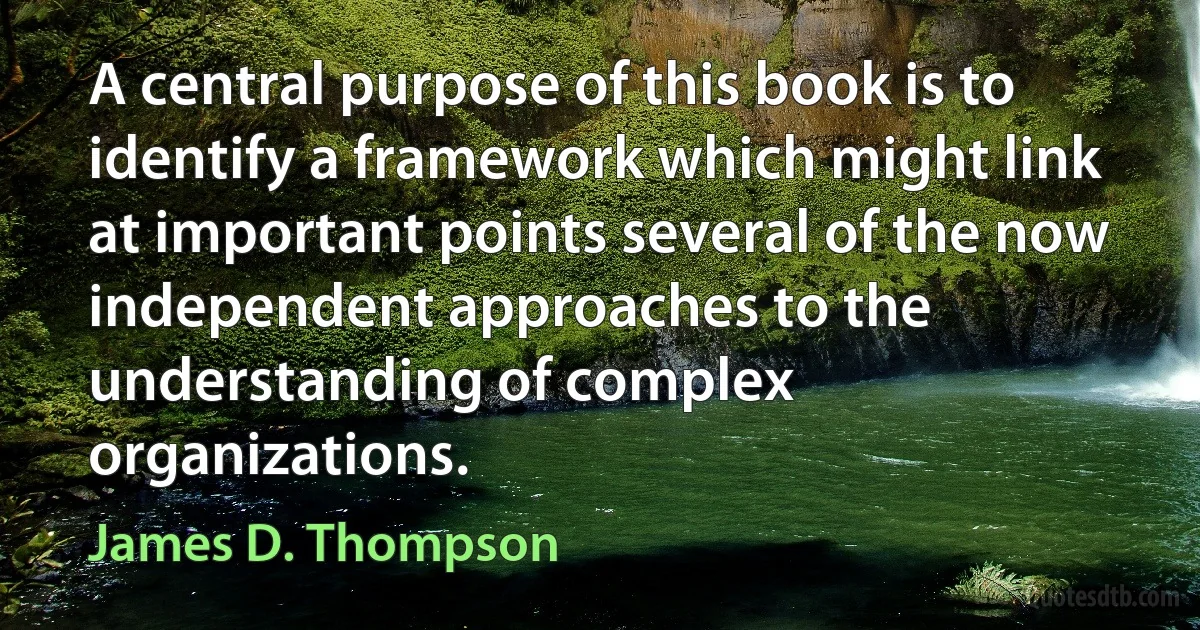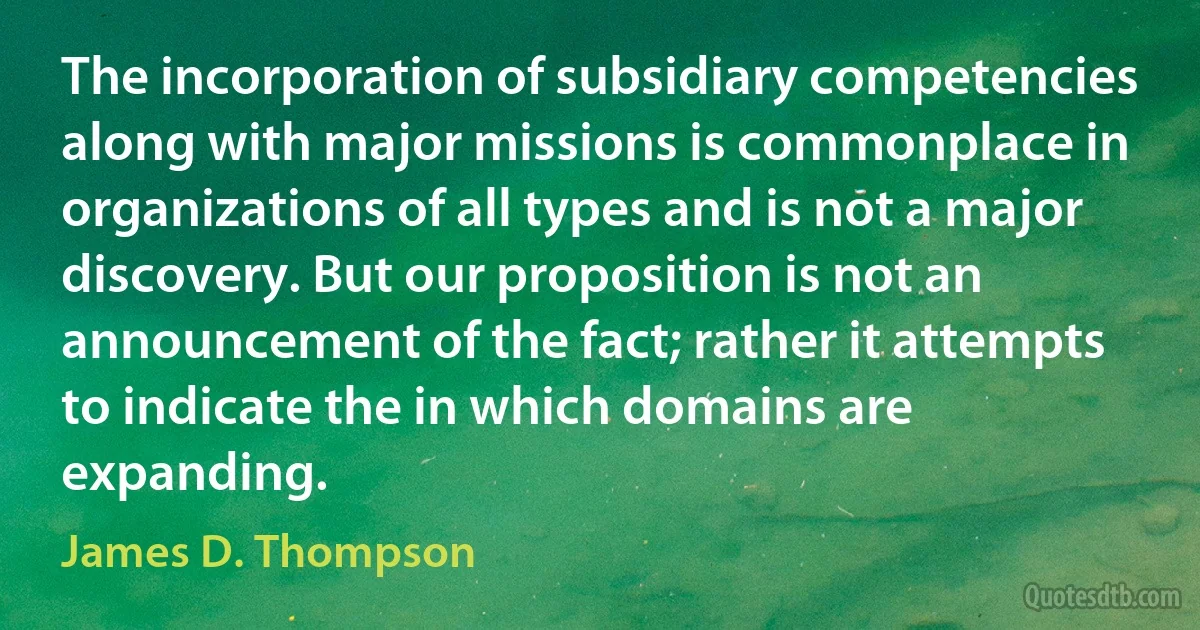James D. Thompson quotes
Organizations under norms of rationality seek to place their boundaries around those activities which if left to the task environment would be crucial contingencies.
The implication of this proposition is that we should expect to find organizations including within their domains activities or competencies which, on a technological basis, could be performed by the task environment without damage to the to the major mission of the organization. For the hotel, for example, provision of rooms and meals would be the major mission, and the operation of a laundry would be excluded; yet we find hotels operating laundries. On the other hand, provision of rooms and meals would not be within the major mission of the hospital, although hospitals commonly include these activities within their domains.

James D. Thompson
The more sectors in which the organization subject to rationality norms is constrained; the more power the organization will seek over remaining sectors of its task environment... many constraints and unable to achieve power in other sectors of its task environment will seek to enlarge the task environment.

James D. Thompson
Most of our beliefs about complex organizations follow from one or the other of two distinct strategies. The closed-system strategy seeks certainty by incorporating only those variables positively associated with goal achievement and subjecting them to a monolithic control network. The open-system strategy shifts attention from goal achievement to survival and incorporates uncertainty by recognizing organizational interdependence with environment. A newer tradition enables us to conceive of the organization as an open system, indeterminate and faced with uncertainty, but subject to criteria of rationality and hence needing certainty.

James D. Thompson


